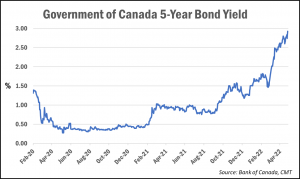Before you shop, read this

Why Budget?
Everyone knows, the cost of living has increased. Going to the grocery store, the gas pump, or a trip or to the movies all costs more. While there isn’t much that can be done about that in the short term, what is in everyone’s control? Budgeting. Work with what you have to help make your finances align with your goals. You do not have to break the bank this Christmas. Read through some of our budget tips on how to live within your means.
Why is it important to set a budget? Spending can get out of control to the point where you may not even know where your money is going. You may not have any savings plan in place. Do you want to start saving for a down payment on a house, or to complete some renovations? Maybe you’re noticing your credit card bills getting out of hand. The Christmas season puts added pressure on bank accounts, but it doesn’t have to. Now is the time to pay more attention to your bank account and spending habits.
By creating a budget you can save money, pay down debts, reduce your stress, have more control and have money to do the things that are truly important to you. Who doesn’t want to live within their means?
Budget Tips:
Create a Budget
The sooner you create a budget the sooner you can start improving your finances. Look at your net monthly income, account for expenses are mandatory, and identify any leaks where money seems to be slipping away.
Christmas spending limit
Do not go overboard with gift buying this year. Get together with family to change how you do things, have a draw for family or friends so you only have to buy for one person. Rather than an expensive gift exchange, make homemade gifts or do a whacky $10 gift exchange. Don’t give into pressures of the season, it’s more important to be true to your values than to get the biggest best gift. Remember what’s truly important to you when it comes to the holidays and focus on that.
Multiple Accounts
Have multiple bank accounts-ensuring that you have a designated spending account will act as your allowance for any discretionary items. Allocating another account where payments come out on a regular basis means you can set it and forget it. Once you’ve determined how much is going out of that account each month, you know how much to put in and subsequently you can alleviate stress. It goes without saying, one of these accounts needs to be for Christmas if you intend to spend money around the holidays.
Automatic Transfers
Set an amount that will transfer to your savings each payday. This can be as low as $25 to get you started and in the habit of saving. If you have a goal you are saving towards, work backwards. Figure out when you need the money, divide it by how many pay cheques you have until then, and set up your transfer for that amount. Then when that trip to Mexico comes up, or your hot water tank goes, you’ll have the funds on hand. This will once again reduce stress.
Emergency Savings
It’s said to have at least 3-6 months worth of expenses in a savings account. For those who aren’t already savers by nature, that can be a daunting number. Especially when the cost of living has risen so significantly, and ‘extra’ money may seem like a pipe dream. Start by saving $500 to $1000 as quickly as you can. This can sit in a savings account that is accessible, and can assist in a true emergency should it arise. This could help reduce anxiety if something comes up, and mean you won’t have to rely on credit as heavily.
Allowance
Give yourself an allowance-really! Once you have all your monthly expenses set, you know what you’ll be able to put into savings. Provide yourself an amount that can be used for your discretionary spending, could be going to the movies, dinner’s out, or grabbing a fancy coffee. Don’t make your budget so strict that there isn’t any fun.
Getting Help
Creating a budget is a really great starting point– but getting the help of a professional is a good idea. A mortgage professional can review your mortgage and other expenses to see if they can help you save money. Don’t have a mortgage? They can also help get you on the path to home ownership by helping to determine what steps you need to take.
Free Monthly Budget Tool
https://docs.google.com/spreadsheets/d/1l2NNg1PHKJwUROjhObANsiML09u8ZUUpDBHWA8FpK3c/edit#gid=0



